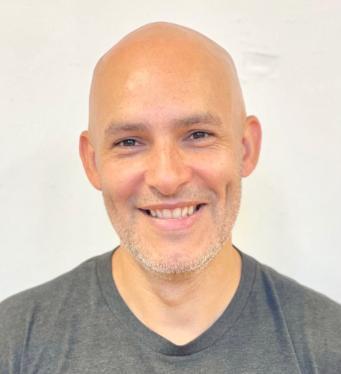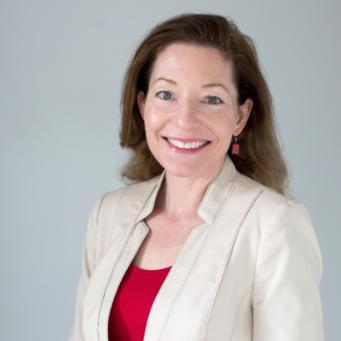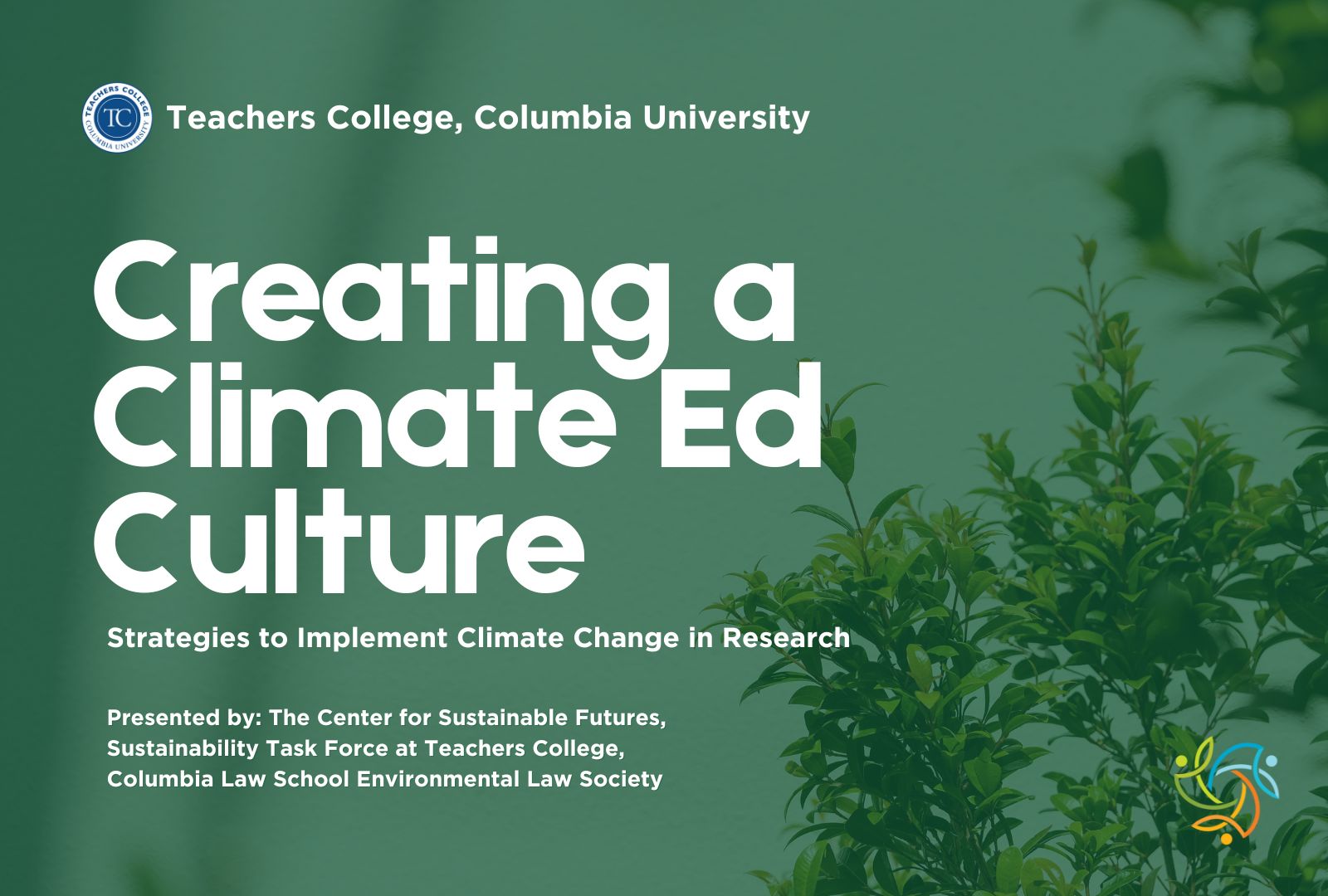At Teachers College, a growing number of faculty and students are exploring different domains of sustainability and education. Iván Asin (Ed.D. Art Education) and Karen Grossman (Ed.D. Adult Learning and Leadership) are among those who’re deeply committed to understanding and addressing sustainability through education. Their doctoral journeys reflect a shared dedication to enriching perspectives, integrating sustainability into education, and inspiring transformative change. Below are their stories and advice for TC students.
Iván Asin

What inspired you to pursue your dissertation topic, and how does it connect to your broader passions or career aspirations?
"I really wanted to make sense of what sustainability means in the context of art education. And I still do. It’s an ongoing thing because I’m also a teacher, so this research really came from a need to understand ways in which I could do my part. I don’t think this topic just connects, I think it is and will be at the core of my attitude toward all future career aspirations. From that perspective the work I did in my dissertation will always inform my career."
How do you see your academic experiences shaping your approach to addressing sustainability challenges in your field?
"My academic experiences taught me to understand the power of questions and to get out of my own head so I could try to understand things in broader ways. So, my academic experience will shape my approach to addressing climate change and anything else that might have an implication in my field. My approach to developing ways of thinking about things is much more cautious because of my academic experience. Even when I feel like I have a handle on something, I still think there are wonderings to be done and TC certainly nurtured that in me."
What advice would you give to current students who want to make a meaningful impact in sustainability education or activism?
"I think I would encourage - and would also like to see - work that gets ideas across in new and more unifying ways. I don’t think that initiatives for climate change have penetrated our civilization enough. I don’t believe we have made clear what’s really at stake here. At least not at the level that the situation requires. There are all these declarations and people letting us know that we’re in a crisis and where we’re headed. We got that. But I don’t think there’s enough work dedicated to ensuring accountability. So, if I have to point anyone in what I think is the right direction it would be toward work that helps create accountability out there. We need people with new ideas about getting people to think about climate change as something real, not a mere slogan. We need to be more effective and that will require a new kind of activism. I’m basically suggesting a total rethinking of how we get our ideas across. So that would be my advice."
How do you envision staying connected with the academic community as you transition into your next chapter?
"A big part of entering graduate school is the opportunity to connect and network with people. In my case I was lucky to meet many people at Teachers College with whom I connected and collaborated on many fronts. These individuals are fellow doctoral students, people from the masters program, my advisor, faculty and also people from other programs. I’m sure they will all be part of my professional circle in the future."
Karen Grossman

What inspired you to pursue your dissertation topic, and how does it connect to your broader passions or career aspirations?
"I was inspired to pursue this topic by my own deep concern for nature and my bewilderment about why there was so much resistance to facing the reality of climate change. I wanted to better understand how those who are closest to the crisis managed to keep going and how it felt for them. So I didn’t have any idea of how it would connect to my career at first – I just wanted to focus on what I saw as the most essential issue for humanity to get right. Now I am incorporating bioregionalism into my organizational development consulting while still offering mainstream consulting services. And I am interested in developing learning pathways for the three “learning from ambiguity” capacities uncovered in my data."
How do you see your academic experiences shaping your approach to addressing sustainability challenges in your field?
"I am amazed at how relevant adult learning and adult development scholarship are to the polycrisis, but the intersections are only just beginning to be fully explored. I think that we have most of the technical solutions needed to address climate challenges, but humanity needs to let go of the systems and culture that are destroying life and attach itself to a different, more evolved consciousness. Adult learning is an invaluable treasure trove of knowledge that can be applied to this arena."
What advice would you give to current students who want to make a meaningful impact in sustainability education or activism?
"Focus as much on humans and the systems that we create as on planetary science. My dissertation recommends that climate educators become familiar with the ways in which existential threat might impact students’ subconscious need to protect or project their worldviews. I would advise that those interested in activism pursue training in systems awareness so that their activism is directed at the macro level of systems rather than the ephemeral nature of today’s political landscape."
How do you envision staying connected with the academic community as you transition into your next chapter?
"I want to pursue publishing shorter articles based on my data and I have always enjoyed being involved with the international transformative learning association. The ITLC (associated conference) offers some great opportunities for collaboration with other scholars. I also would love to be involved with TC’s Center for Sustainable Futures and am excited to learn more about its work."
